Thursday, August 31, 2006
THE MEMPHIS READS QUESTION--8/31/06

What are the best (or worst) film adaptations of books?
Don't forget the previous Memphis Reads Questions:
Which Books Have The Most Appealing Covers?
Which Characters Have Been Unforgettable?
What Makes A Book Unputdownable?
Labels: Books and Movies, Memphis Reads Question
Wednesday, August 30, 2006
[Book Review] MAISIE DOBBS by Jacqueline Winspear
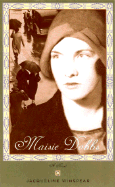 Fiction/ Genre: Mystery
Fiction/ Genre: MysteryClare Coffey reviews MAISIE DOBBS: A Novel by Jacqueline Winspear (Soho Press, 2003):
Maisie Dobbs is a young woman from a poor family who steps beyond the limitations of her life in English society before and after World War I. Following her mother's death, 13-year-old Maisie's father arranges a position for her as a maid in a fine London home. Her exceptional intelligence is recognized by her employer, Lady Rowan, and a highly regarded psychologist, Maurice Blanche. Together they propel Maisie into a world that she would never have imagined possible. She is able to receive tutoring and attend a women’s college, virtually unheard of for women, much less a poor girl. Like many patriotic young women, Maisie learns true compassion and the horror of war as a battlefield nurse. It is also under this circumstance that she finds true love. These experiences provide the background for her keen intelligence and professionalism in a society just beginning to accept women in non-traditional roles. The book opens in 1929 with Maisie at work as a private investigator on her first case. Under the tutorship of Maurice, one clue leads to another, and she is able to protect those who deserve it and prosecute those who need it.
Maisie Dobbs was the author's first book. Since then, she has written Birds of a Feather and Pardonable Lies, which feature Maisie, her assistant Billy, and the consultation of her elderly father, Lady Rowan, and Maurice Blanche.
Clare Coffey, Humanities Department
Labels: Mystery
[Book Review] GOD DON'T LIKE UGLY by Mary Monroe
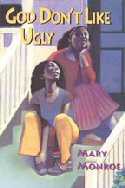 Fiction/ Genre: African-American
Fiction/ Genre: African-AmericanBarbara Wallace reviews GOD DON’T LIKE UGLY by Mary Monroe (Dafina Books, 2000):
Chubby and unattractive Annette Goode and her mother, Muh' Dear, just barely manage to survive when they are abandoned by Annette’s father. Of course, things weren’t that much better even before he ran off with a white woman. They live a subsistence existence in rural Florida under Jim Crow and depend on cast-off clothes and food smuggled out of the houses of the white families that Annette’s mother cleans for. A shady character, Scary Mary, befriends Muh' Dear and encourages her to move "up North" where things are bound to be easier. They follow Mary to the small city of Richland, Ohio. Muh' Dear manages a little better in Richland, where she takes up with one of her customers, Judge Lawson, who provides them with a house. Family income is supplemented further by the arrival of old Brother Boatwright who pays a little rent for the extra bedroom and takes on the responsibility of "watching" Annette while her mother works.
God Don't Like Ugly is filled with fascinating and well-drawn characters held together by a web of love and secrets. The action really starts when the character Rhoda Nelson is introduced. Rhoda is a beautiful, worldly black "princess" who lives in the neighborhood and transforms Annette's life by befriending her. Rhoda has all the courage and confidence that Annette lacks, but some of the life lessons that Annette learns from her friend she may have wished to skip.
Monroe returns to these characters in a sequel called God Still Don't Like Ugly
Barbara Wallace, Randolph Branch Library
Meet the Author! On Wednesday, September 6 at 6:30 p.m., Mary Monroe will be at the Benjamin K. Hooks Central Library (3030 Poplar Avenue, Memphis, TN 38111, 2nd Floor-Humanities Reading Area). Call (901) 415-2700 for more information.
Labels: African-American Fiction, Reviews by Barbara Wallace
[Book Review] JUST KILLING TIME by Derek Van Arman
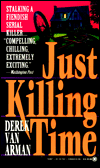 FICTION/ Genre: Suspense
FICTION/ Genre: SuspenseSharon Evrard reviews JUST KILLING TIME by Derek Van Arman (Dutton, 1992):
Zak Dorani is a very bad man. He has been a successful serial killer for thirty years. Jack Scott is a very a good man. Through his dedication and hard work, he has brought many serial killers to justice. Scott works for ViCAT, or Violent Criminal Apprehension Team, a program of the FBI. In this story we see how Scott and his team stop Dorani's reign of terror and help save the lives of Dorani's next targets. This story brings you into the mind of a serial killer and into the mind of his pursuer. It also gives you insight into the FBI's program of VICAP (named ViCAT in this book).
Derek Van Arman (pseudonym for Derek V. Goodwin) depicted the VICAP program so well that, after the book's publication, the author was under investigation by the FBI to find out his sources. Mr. Van Arman has worked for several government agencies. For instance, he was editor for the National Board. As editor, he worked closely with intelligence and law enforcement agencies investigating the psychology of violent criminals.
Sharon Evrard, Cordova Branch Library
Labels: Suspense
Tuesday, August 29, 2006
MEET THE AUTHOR: Mary Monroe
 Please join bestselling author Mary Monroe, author of God Don't Like Ugly as she talks about her latest book God Don't Play.
Please join bestselling author Mary Monroe, author of God Don't Like Ugly as she talks about her latest book God Don't Play. 2nd Floor-Humanities Reading Area
Books for sale and signing courtesy of BOOKSTAR
This event may be recorded or photographed for use by the Memphis Public Library & Information Center on WYPL-TV or radio or in library publications.
Thursday, August 24, 2006
Do You Read 'Young Adult' Fiction?
I think that some of my colleagues, who regularly read and recommend "teen" fiction, may quibble with a few of Haegele's assertions (about the "fluffiness" of the books or the "newness" of the young adult fiction movement, for instance). Stay tuned...
Wednesday, August 23, 2006
Carlos Ruiz Zafón's THE SHADOW OF THE WIND
Daniel Sempere was ten years old in 1945 when his father, a bookseller, took him to the Cemetery of Forgotten Books in their home city of Barcelona, Spain. A place known only to a select few, the tradition was that on his first visit, the visitor would find a book that would be "his." He would, from then on, have to ensure the book never disappeared, for that was the mission of the Cemetery of Forgotten Books....
Daniel devours The Shadow of the Wind in one night, he's so taken by the story. But we see that from the very start this book will mean more to him than words on a page when he almost immediately finds a scene from the book repeated in his own life. He steps out on the balcony in the small hours of the night and sees a man, gazing in his direction, with one hand in his jacket. In The Shadow of the Wind, it is the devil who strikes this very pose when the protagonist goes out on his balcony at night.click here to read full review
Questions, ideas, suggestions, links, reviews,... for the MEMPHIS READS blog are always welcome! You can share them by leaving a comment or by e-mail.
[Book Review] THE AMAZING ADVENTURES OF KAVALIER & CLAY by Michael Chabon
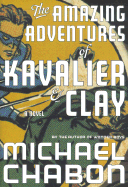 Fiction/Genre: Coming of Age Gay & Lesbian
Fiction/Genre: Coming of Age Gay & LesbianSharon Evrard reviews THE AMAZING ADVENTURES OF KAVALIER & CLAY by Michael Chabon (Random House, 2000):
It all began one night in Brooklyn in 1939. Sammy Klayman was trying to sleep when his mother told him to move over and make room for his cousin, Joseph Kavalier from Prague. Sammy had known that he had relatives in Europe, but had never dreamed he would meet one of them, much less share his narrow bed with one. Sammy finds to his delight that he has met a soulmate in his cousin Joseph. Both of them love drawing and escapism and both are looking for a means to make their way in the world. Sammy wants to escape Brooklyn; Joseph wants to help his family come to the new world from their old world, which is breaking apart. Through Sammy's storytelling and Joseph's drawing skills, and not without a certain amount of bluffing, the young men find themselves entering the world of comic books. "Superman" comics first made their appearance in the past year and opened the "golden age of comics." As the years pass, the war in Europe explodes, the business of comics takes off and the two men find themselves in a new world, both an inner world of discovery and an external world of change.
Sharon Evrard, Cordova Branch Library
Monday, August 21, 2006
[Book Review] ALL THE PRETTY HORSES by Cormac McCarthy
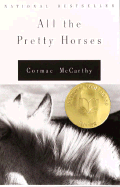 Fiction/Genre: Westerns
Fiction/Genre: WesternsDoris Dixon reviews ALL THE PRETTY HORSES by Cormac McCarthy (Knopf, 1992):
As much as I love watching movies, I usually avoid films based on my favorite books. The film "Beloved" offers a good example of why I prefer to either read the book or watch the movie. Oprah Winfrey's production followed the Toni Morrison novel too closely. A movie that was its own artistic statement (that took more chances, asserted more liberties, made more leaps) would have been a far greater tribute to Morrison's masterpiece.
Having been captivated by the book, I vow never to watch the film "All The Pretty Horses." The novel tells the story of sixteen-year old John Grady Cole, a skilled horseman. Perhaps his talents would have been better appreciated in an earlier age. Now, three years after the end of World War II, highways and fences spoil the traditional terrain of the cowboy. When his grandfather dies and his mother, more interested in professional acting than ranching, sells the family land, John Grady and his friend Lacey Rawlins flee Southern Texas on horseback. They cross into Mexico at the Rio Grande. There they meet another Anglo teen on horseback. Jimmy Blevins is younger (perhaps only thirteen) and dangerous (his beautiful horse may be stolen). Against Rawlins' advice, John Grady allows Jimmy to join them.
As they ride, they notice an approaching thunderstorm. Having been struck by lightning before, Jimmy is terrified. He tries to outrun the storm, then dismounts, strips naked, and hides to avoid being struck again. His horse, clothes, and gun are washed away. Later, when the boys try to reclaim Jimmy’s horse and gun in a nearby village, the townsmen chase them through the countryside and the trio is separated. John Grady and Rawlins seek refuge at a vast estate. John Grady finds work there as horse trainer, Rawlins as a vaquero or cowboy. John Grady falls in love with the rancher’s daughter while his companion enjoys the company of the other workers. Their sanctuary and life as cowboys are ruined when Jimmy reappears.
I enjoyed this book for many reasons. It as an odyssey and a coming-of-age story. The hero, admirable because of his integrity, confronts cruelty and violence on his quest to live as cowboys did in the previous century. McCarthy’s language is both spare and lyrical, the dialogue in everyday English and Spanish. I found the setting engaging as well. Because of the intimate ways in which his characters interact with their surroundings, McCarthy’s vivid descriptions of the terrain were appealing even though I sometimes do not care for such elaborate details. McCarthy also lovingly depicts horses.
John Grady's story is the first volume of McCarthy’s Border Trilogy. Volume two is The Crossing. Cities of the Plain concludes the series.
Doris Dixon, Raleigh Branch Library
Read Kay Due's review of No Country For Old Men also by Cormac McCarthy.
Labels: Reviews by Doris Dixon
Saturday, August 19, 2006
[Book Review] BLANCHE ON THE LAM by Barbara Neely
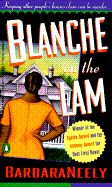 Fiction/ Genres: African American Mystery
Fiction/ Genres: African American MysteryInger Upchurch reviews BLANCHE ON THE LAM by Barbara Neely (St. Martin's Press, 1992):
Blanche is a feisty, African-American maid on the run from the local Sheriff for writing bad checks. Hard-working and honest, she wrote the checks to make ends meet after some of her employers "forgot" to pay her. Needing to hide out for a while, she takes a job cooking and caring for Miz Grace and her family at their summer home in Hokeysville, North Carolina. Blanche finds herself in the middle of a murder mystery involving a group of odd characters, each of whom may be trying to kill the others to claim the family fortune. She tries her best to keep her wits about her as she deals with her employer's messy family as well as her own (Mama and two children). Blanche is an endearing character with a rich and colorful approach to life. She is funny, real, loud and totally down to earth. Blanche on the Lam is the first in a series by Barbara Neely.
Inger Upchurch, North Branch Library
Labels: African-American Fiction, Mystery
Tuesday, August 15, 2006
What Are People Saying About IN COLD BLOOD?
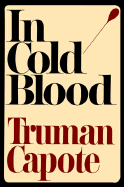 Thirty years after it was first published, Truman Capote's IN COLD BLOOD still fascinates. In telling the story of the 1959 murders of the Cutters, a wealthy family from Holcomb, Kansas, Capote aimed to create a new genre, the non-fiction novel. Aided by his childhood friend Harper Lee, Capote did extensive research in Holcomb and conducted in-depth interviews with the murderers, Perry Smith and Richard Hickock. When it was published in January 1966, In Cold Blood was a commercial and critical success and marked the high point of Capote's career as a writer.
Thirty years after it was first published, Truman Capote's IN COLD BLOOD still fascinates. In telling the story of the 1959 murders of the Cutters, a wealthy family from Holcomb, Kansas, Capote aimed to create a new genre, the non-fiction novel. Aided by his childhood friend Harper Lee, Capote did extensive research in Holcomb and conducted in-depth interviews with the murderers, Perry Smith and Richard Hickock. When it was published in January 1966, In Cold Blood was a commercial and critical success and marked the high point of Capote's career as a writer.Recently the Central Daytime Book Club met to discuss the book. Jason Ezell, co-moderator of the group, gives us an inside look at what people are saying about In Cold Blood:
Our Central Daytime Book Club met on Wednesday, Aug. 2nd, to discuss Truman Capote's In Cold Blood. Discussion first centered on how Capote managed to treat the factual material with the artistry of fiction, often lulling us into forgetting the story was based on true events and then reminding us, too, at times, how real these events were. One member commented on how Smith and Hickock are alternately portrayed as callous criminals and then as victims of a harsh society and that this maneuver complicates the placement of our sympathies. We discussed how the book seemed to go beyond the story of a murder and provide a portrait of 50s America, shining a light on all its fault lines and exclusions as well as on its cultural achievement.
Capote's novel led us to parallel discussions about our criminal justice system and, specifically, the death penalty. We speculated about the development of the criminal mind and the potential for rehabilitation. We talked about Capote's methods of collecting information for In Cold Blood, which led us to talk a bit about the recent Academy Award-nominated film "Capote." The group also commented on similarities between this novel and Harper Lee's To Kill a Mockingbird and recalled Lee's role in helping Capote research for the book.
Our group's discussion of this book was a very good one, ranging from social issues to literary technique and history.
Our next meeting will be on Wednesday, September 6th, at 10:30 a.m. at the Benjamin L. Hooks Central Library. The book for that discussion will be Waiting by Ha Jin, the story of a love triangle in contemporary China. [Book Description]
Please call (901) 415-2726 for more information.
Monday, August 14, 2006
Book News: Monday, August 14, 2006
Günter Grass, Nobel-prize winning author of such works as THE TIN DRUM, admitted to having served in the Nazi Waffen-SS. Thus, Grass's involvement with the Nazis was more complicated than he had previously admitted. According to the news stories, Grass served as a teenager in the last months of World War II. Controversy stems from his having been an outspoken advocate for Germans' truth-telling about their Nazi past. TIME San Francisco Chronicle
The long list for the Man Booker Prize was announced. According to its website, this very prestigious award recognizes the "best novel of the year written by a citizen of the [British] Commonwealth or the Republic of Ireland. . . .The winner of the Man Booker Prize receives £50,000 and both the winner and the shortlisted authors are guaranteed a worldwide readership plus a dramatic increase in book sales. BBC News Guardian (UK)
To submit a news items about books, authors or a related topic, please send an e-mail to the weblog administrator. As stated in the blog guidelines, "The purpose of this blog is to discuss books, therefore, please do not promote any product or service or any non-library event (examples include self-published and commercial books; poetry readings and other public programs; and editing, tutoring and other professional services)."
Labels: News
[Book Review] PRIME CUT by Diane Mott Davidson
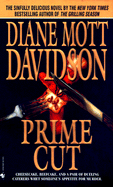 Fiction/Genre: Mystery
Fiction/Genre: MysteryMichele Yellin reviews PRIME CUT by Diane Mott Davidson (Bantam Books, 1998):
Goldy Bear Schulz, the best caterer in Aspen Meadows, Colorado, is immersed in chaos at home and at work. Her husband, Tom, has been temporarily suspended from the police force. He's intent on remodeling their unfinished kitchen, which was abandoned by a thieving contractor. At the same time, Goldy is faced with an unscrupulous competitor for catering jobs. When the contractor for the remodeling job is later found dead, Goldy's old friend, the historical society's president, is accused of the murder. She works simultaneously to save him and her business and to investigate the theft of a collection of historical cookbooks. Toss in her teenage son's new interest in girls and her out-of-kilter kitchen and the mix produces a humorous and stirring story.
Twelve savory recipes are included. One can smell the coffee in this installment, so pour yourself a cup and savor!
Michele Yellin, East Shelby Branch Library
Read Beth's review of DARK TORT, also by Diane Mott Davidson
Saturday, August 12, 2006
[Book Review] THE BOOK OF THE DEAD by Douglas Preston and Lincoln Child
 FICTION/Genre: Horror
FICTION/Genre: HorrorAlice Kendall reviews THE BOOK OF THE DEAD by Douglas Preston and Lincoln Child (Warner Books, 2006):
For those of us who have followed Aloysius Pendergast’s career starting with his first appearance in Relic, this is a must read. For those who have not, do not read this book until you have read Dance of Death. All of the books by these two authors are stand-alone works of fiction, but these last two are so closely linked, they should be read in order.
Few authors have achieved what Douglas Preston and Lincoln Child have; books of horror that fly off the shelf. Their characters are interesting, able and sympathetic. If the evil that needs to be fought is unbelievably powerful, the forces of good are equal to the task. In these last two novels, FBI Agent Pendergast is shown to be (slightly) human; not the unequalled intellect we have come to expect. This only heightens the delicious suspense and adrenalin rush as he and his companions seek first to discover the horrific threat and then to stop it. Along the way, we learn more about the Pendergast family and the people they touch in the course of their lives.
For years I avoided the horror genre. I avoided horror movies (except Hitchcock, of course) and horror books, until I had to read one. Relic was recommended by several friends as one of the best horror books they had read. Following their advice, I read it and have been reading horror ever since. If, like me, you avoid this genre, I recommend any of the books by Preston and Child. They are inventive, action-packed fast reads with nary a nightmare. Can’t ask for more than that.
Alice Kendall, Parkway Village Branch
Labels: Horror, Reviews by Alice Kendall
Friday, August 11, 2006
Any Harold McGee Fans Online?
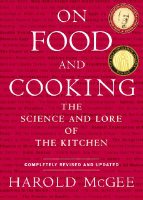 If you want to learn everything about the art and science of cooking, consult ON FOOD AND COOKING: The Science and Lore of The Kitchen by Harold McGee (Scribner, 2004, rev. ed.)
If you want to learn everything about the art and science of cooking, consult ON FOOD AND COOKING: The Science and Lore of The Kitchen by Harold McGee (Scribner, 2004, rev. ed.)According to the publisher,
"'On Food and Cooking' is a kitchen classic...the bible to which food lovers and professional chefs worldwide turn for an understanding of where our foods come from, what exactly they're made of, and how cooking transforms them into something new and delicious."
When the revised edition was unleashed in 2004, Publishers Weekly raved that McGee
"dances from the spicy flavor of Hawaiian seaweed to the scientific method of creating no-stir peanut butter quoting Chinese poet Shu Xi and biblical proverbs along the way."
Bill Buford of the New Yorker cautions
"These are not books in any conventional sense. The trappings -- the dust jacket, the author photo -- are a pretense to set the author loose inside, where you’ll find displays of a brilliant, unconventional mind unable to stop itself....McGee’s first so-called edition is a miscellany of essays answering obvious, but rarely asked questions of this kind. Who invented gravy? What is the history of alcohol? What is a protein?...The order, I now appreciate, is an illusory device used to hold back -- tethered like a horse -- the mind of an obsessive that's about to bolt. In the second edition, it bolts. This is a book written by a man who wants to explain, well, everything."
Have you ever consulted or read On Food and Cooking? What were your impressions?
Wednesday, August 09, 2006
[Book Review] THE DIARY OF MATTIE SPENSER by Sandra Dallas
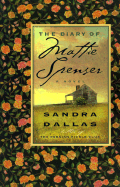 Fiction/Genre: Westerns; Historical Fiction
Fiction/Genre: Westerns; Historical FictionBarbara Wallace reviews THE DIARY OF MATTIE SPENSER by Sandra Dallas (St. Martin's Press, 1997):
Mattie is surprised when Luke Spenser returns to Iowa from his Colorado homestead and proposes to her. Everyone thought that the handsome and accomplished Luke was sweet on Persia and would end up marrying her. But this was not to be--Mattie wore her navy silk suit and the young couple married in a hurry and left for the west. On her departure, Mattie decided to keep a secret diary about her new life. The diary would be her "little friend" in the lonely days ahead without women friends or family. We follow the young couple as they get to know each other, build a sod house, meet their neighbors and form lifelong friendships with some of them, fight Indians, celebrate holidays, and suffer the births and deaths of children. This is a charming, gentle read with the relationship between Mattie and her husband at its heart. But is Mattie the only love in Luke's life?
Barbara Wallace, Randolph Branch Library
Labels: Historical Fiction, Reviews by Barbara Wallace
Tuesday, August 08, 2006
[Book Review] OUR LADY OF THE FOREST by David Guterson
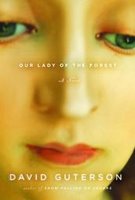 Fiction/Genre: Mainstream
Fiction/Genre: MainstreamPhilip Williams reviews OUR LADY OF THE FOREST by David Guterson (Knopf, 2003):
Ann Holmes is a 16-year old runaway with a history of drug abuse who lives in a tent ouside North Fork, Washington. Ann claims to have seen the Virgin Mary while picking mushrooms in the forest. Her claim inspires local residents, such as Father Don Collins, the sympathetic local priest, and Tom Cross, an out-of-work logger who has a quadriplegic son. Thousands of outsiders come to North Fork, many of whom believe that miracles are occuring because of Ann's vision. Ann's intense faith and her certainty that she has seen the Virgin Mary have a lasting impact on everyone she encounters.
Our Lady of the Forest is not a light, escapist, or fast read. It is thought-provoking and, although there is some wry humor, the novel deals with serious and philosophical ideas. Because of some sexual content, some readers might be offended by the mixing of sex and religion.
Philip Williams, Whitehaven Branch Library
Labels: Mainstream Fiction, Reviews by Philip Williams
Monday, August 07, 2006
[Book Review] SLEEPING WITH FEAR by Kay Hooper
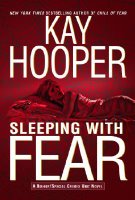 Fiction/Genre: Suspense
Fiction/Genre: SuspenseBeth reviews SLEEPING WITH FEAR by Kay Hooper (Bantam, 2006):
Well, I admit it, this book fell into three of my personal categories--"scary cover art," "series" and "it’s going to be a long wait." I was heading to vote and knew I needed to prepare for the long lines that the TV broadcasters had been talking about, so I picked this book up. Amazingly the wait wasn’t too long, but that turned out to be a bad thing. . . I loved this book! I am now going back to read the first two of Hooper’s Fear trilogy (Hunting Fear and Chill of Fear).
Even before she opened her eyes, Riley Crane was aware of two things. Her pounding head, and the smell of blood.
Neither was all that unusual.
Immediately I was drawn into this world where a woman wakes up and is not worried about the smell of blood. What does she do that makes this "normal?" I had to read on. . .
Taking the chance, Riley pushed herself up on her elbows and then slid her right hand underneath the pillows. Ahhh . . . at least it was there, right where it was supposed to be. Her hand closed over the reassuring grip of her weapon, and she pulled it out, giving it a quick visual scan.
And a weapon under her pillow is "right where it was supposed to be?" More and more fascinating.
What had happened?
She didn't have the faintest clue, that was the hell of it. She had absolutely no memory of how she'd gotten herself covered with blood.
She couldn’t remember how it happened? She was covered in blood! As I read on, the details, some good/some bad, slowly emerge from Riley's memory. She is a psychic FBI agent who can’t remember the last three weeks and she hasn’t reported in to her superior in two. She has been on Opal Island for those three weeks and has dated the Sheriff Jake Ballard and is currently sleeping with the local D.A. Ash Prescott. As the men quibble over Riley, she begins to realize she is under attack from someone who is using evil power to control her. She must solve the grizzly occult homicide to regain her lost powers, memories and self.
This book kept me guessing to the end. It has it all: the occult, pyschics, love, romance, murder and more!
Beth, Highland Branch Library
Labels: Reviews by Beth, Suspense
[Book Review] DEVIL IN A BLUE DRESS by Walter Mosley
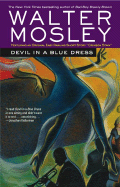 Fiction/Genre: Mystery
Fiction/Genre: MysteryTerrice Thomas reviews DEVIL IN A BLUE DRESS by Walter Mosley (Norton, 1990):
Ezekiel "Easy" Rawlins is a black war veteran just fired from his job at an aircraft manufacturing plant for standing up to his white boss. Easy is desperate for money so that he can pay his mortgage and not lose the pride and joy of home ownership. A friend introduces him to a sleazy character named Dewitt Albright, who offers Easy a lot of money to look for a white woman who's been hanging out with a local gangster at illegal after-hours black clubs. Easy finds that he's not the only one looking for Ms. Monet and soon he's up to his neck in bootleggers, crooked politicians, and racist cops. As events move beyond Easy's grasp, he has to call on his old friend from Houston, Mouse (a very nasty character) to help him out. In the end, Easy finds himself becoming an unlikely detective after he finds Ms. Monet and solves the murders of several people connected to her.
The story is a quick-read with much dialogue and some descriptions. This first book in Mosley's Easy Rawlins series is enjoyable for its settings, suspense and characters. There's some good tension between Mouse and Easy. Mosley does a masterful job of depicting post-World War II Los Angeles, a multiethnic city that is largely socially segregated.
Terrice Thomas, LINC Department
Labels: African-American Fiction, Mystery
Friday, August 04, 2006
Reader's Bill of Rights
The Reader's Bill of Rights
The right not to read.
The right to skip pages.
The right to not finish.
The right to reread.
The right to read anything.
The right to escapism.
The right to read anywhere.
The right to browse.
The right to read out loud.
The right to not defend our tastes.
In her online column, "Reading Between The Lines," Kris Adams Wendt of Rhinelander (Wi.) District Library explains the context in which Pennac wrote the Reader's Bill of Rights:
Pennac dedicates his book to “those few adults who gave me the gift of reading, let their books speak and never once asked if I had understood.” His writing is witty, funny, entertaining and very wise.
He visualized the magical threesome of a small child, a caring adult and Dr. Seuss, all joyously sharing the story of Sam-I-Am who does not like green eggs and ham. He contrasts that moment with the “must read” and “must understand” times yet to come in the life of that child – the questions, worksheets, tests, [and] book reports....
The author encourages parents to read aloud even after their children are ready and able to read to themselves. To recapture the cozy relaxation of the pre-school years, night after night, until the school age child trusts in reading as a pleasurable activity and picks up the book to read ahead.
Pennac takes a step beyond the usual read-aloud enthusiasts by asking adults to grant young people the rights and privileges that we associate with our own reading.
To Pennac's original rights, I would add "the right to keep private what one is reading."
What reading rights do you assert?
Wednesday, August 02, 2006
30th Anniversary of THE TASTE OF COUNTRY COOKING by Edna Lewis
Only eight minutes long, this segment is a real gem (you'll need RealPlayer to listen). Peacock explains that Lewis was at the forefront of an approach to cooking that focused on purity and the immediacy of the seasons ("What grows together, goes together.") I regret that I cannot transcribe this interview for you to enjoy. Here's a snippet of Lewis' book which the show's host, Neal Conan, reads aloud:
Breakfast was about the best part of the day. There was an almost mysterious feeling about passing through the night and awakening to a new day. Everyone greeted each other in the morning with gladness and a real sense of gratefulness to see the new day. If it was a particularly beautiful morning it was expressed in the grace. Spring would bring our first and just about only fish--shad. It would always be served for breakfast, soaked in salt water for an hour or so, rolled in seasoned cornmeal, and fried carefully in home-rendered lard with a slice of smoked shoulder for added flavor. There were crispy fried white potatoes, fried onions, batter bread, any food left over from supper, blackberry jelly, delicious hot coffee, and cocoa for the children. And perhaps if a neighbor dropped in dandelion wine was added. With the morning feeding of the animals out of the way, breakfast was enjoyable and leisurely (pp. 3-4).
As I was thumbing through the book this evening, I found a statement that many of you will appreciate:
The smell of coffee cooking was a reason for growing up, because children were never allowed to have it and nothing haunted the nostrils all the way out to the barn as did the aroma of boiling coffee (p. 26).
In the comments to my review of My Life in France by Julia Child, I recommended Lewis' book and observed that
Julia Child (My Life in France) and Edna Lewis (The Taste of Country Cooking) are no doubt glossing over the "messier" parts of life. Both women are looking back, after several decades have passed, on a time that they remember as having been "ideal." Do people often associate food with the "best times" of their lives? Can you recommend cooking narratives that deal with troubled times?
Any thoughts on these questions?
Will Harry Live?
From USA Today:
NEW YORK — Offering no hints about the fate of Harry Potter, author J.K. Rowling said Tuesday that she is "well into" the seventh and final book in her series and predicts, "Some will loathe it, some will love it, but that's the way it should be." In her first visit to the USA since 2000, Rowling didn't say when the book would be finished or what it would be titled, but "to an extent, the pressure is off." She said she is having fun resolving the story that began with Harry Potter and the Philosopher's Stone in 1997 (Sorcerer's Stone in the USA) and has gone on to sell 300 million copies worldwide.
In June on British TV, she revealed that two of her major characters would die in the final book, triggering speculation and alarm that Potter, the boy wizard, could be doomed. She offered no more hints Tuesday, only that in "an epic saga, the hero has to fight alone."
Read the rest of the article here.
Labels: News
Tuesday, August 01, 2006
Book Club Spotlight--Second Saturdays Book Club
Highland Branch Library
From Jesse Pool, Book Club Moderator:
The Second Saturdays Book Club has met at Highland Branch Library since 1998. Many members—and several moderators—have come and gone, but the book club has consistently had 4 to 5 regulars over the past year. Our book club is open to anyone and we love to see new faces.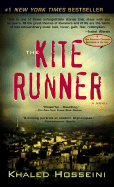 We read one book a month, although we usually skip December because of the busy holiday season. Also, some of the summer months have been skipped in the past, but we decided to keep our monthly schedule this year. We usually meet for an hour to an hour and a half, depending on the amount of discussion that a book generates.
We read one book a month, although we usually skip December because of the busy holiday season. Also, some of the summer months have been skipped in the past, but we decided to keep our monthly schedule this year. We usually meet for an hour to an hour and a half, depending on the amount of discussion that a book generates.
Our book club has read a variety of titles over the years, but 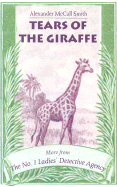 generally we read books by Southern authors and those set in foreign countries. It was a special treat to have local author and former MPLIC staffer Johanna Edwards come and discuss her first book, The Next Big Thing. Some other recent group favorites have been The Kite Runner by Khaled Hosseini and Alexander McCall Smith's Tears of the Giraffe, which is the second book in the No. 1 Ladies Detective Agency series.
generally we read books by Southern authors and those set in foreign countries. It was a special treat to have local author and former MPLIC staffer Johanna Edwards come and discuss her first book, The Next Big Thing. Some other recent group favorites have been The Kite Runner by Khaled Hosseini and Alexander McCall Smith's Tears of the Giraffe, which is the second book in the No. 1 Ladies Detective Agency series.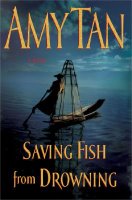 Several club members say that our reading selections introduce them to titles and authors that they might not have read otherwise. Others like to "wander around in people’s minds" for a while and experience cultures different from their own. Everyone agrees that we get more out of a reading by discussing how it affects us personally and by sharing the individual experiences and viewpoints that frame how we interpret the book.
Several club members say that our reading selections introduce them to titles and authors that they might not have read otherwise. Others like to "wander around in people’s minds" for a while and experience cultures different from their own. Everyone agrees that we get more out of a reading by discussing how it affects us personally and by sharing the individual experiences and viewpoints that frame how we interpret the book.
We will meet on Saturday, August 12th at 1:30 pm to discuss The Sweet Potato Queens’ Book of Love by Jill Conner Browne. Other upcoming titles are Amy Tan’s Saving Fish From Drowning (Sept.), Wickett’s Remedy by Myla Goldberg (Oct.) and No Place Like Home by Mary Higgins Clark (Nov.). We hope to see you there!
Thank you, Jesse and Second Saturdays Book Club Members!
Labels: Book Clubs
Book Clubs @ Your Library, August 2006
Book Lover's Book Club
East Shelby
Tuesday, August 15, 1:30 p.m.-2:30 p.m.
Book selection: Agatha Raisin and the Quiche of Death by M.C. Beaton [description]
Central Daytime Book Club
Benjamin L. Hooks Central Library
Wednesday, August 2, 10:30 a.m.-Noon
Book Selection: In Cold Blood by Truman Capote [description]
Central Readers' Club for Men and Women
Benjamin L. Hooks Central Library
Monday, August 21, 7:00 p.m.-8:30 p.m.
Book selection: Girl In Hyacinth Blue by Susan Vreeland [description]
Cordova Book Club
Cordova
Tuesday, August 15, 12:00-2:00 p.m.
Book selection: Lucia, Lucia by Adriana Trigiani [description][Memphis Reads review]
North Women’s and Renaissance Men's Book Clubs
North
Saturday, August 12, 2:00 p.m.
Book Selection: Changing Faces by Kimberla Lawson Roby [Memphis Reads review]
Page Turners Book Club
Hollywood
Saturday, August 12, 11:15 a.m.-12:15 p.m.
Book Selection: So You Call Yourself A Man by Carl Weber [description]
Second Saturdays Book Club
Highland
Saturday, August 12, 1:30-3:00 p.m.
Book selection: The Sweet Potato Queen’s Book of Love by Jill Conner Browne [description]
Whitehaven 4th Monday Book Club
Whitehaven
Monday, August 28, 7:00-8:00 p.m.
Book selection: Babylon Sisters by Pearl Cleage [description]

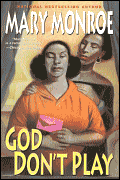 Wednesday, September 6 at 6:30 p.m.
Wednesday, September 6 at 6:30 p.m.


